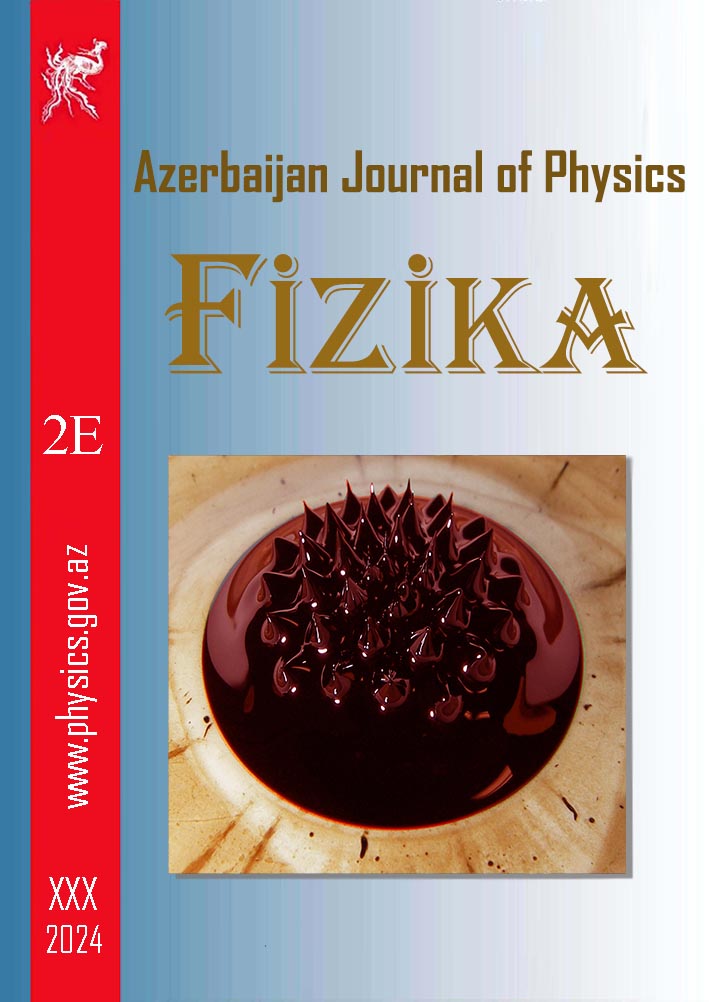ABSTRACT
We propose exactly-solvable model of the confined harmonic oscillator in the framework of the effective mass formalism varying with position. Analytical expression of the
position-dependent effective mass is chosen by such a way that it provides confinement effect for the via the infinitely high borders at value of position x = ±a. Wave
functions of the stationary states of the oscillator model under study have been obtained by solving exactly corresponding Schrödinger equation, which free Hamiltonian is
compatible with Galilean invariance. Analytical expression of the wave function is described by the Gegenbauer polynomials, whereas obtained energy spectrum is discrete,
but non-equidistant. It is shown that both energy spectrum and wave function completely recover known expressions of the so-called Hermite oscillator equidistant energy
spectrum and wave function of the stationary states under the limit a → ∞.
Keywords: Position-dependent effective mass, quantum harmonic oscillator, Gegenbauer polynomials, non-equidistant energy spectrum.
PACS: 03.65.-w, 02.30.Hq, 03.65.Ge
Received: 19.10.2020
AUTHORS & AFFILIATIONS
Institute of Physics, Azerbaijan National Academy of Sciences Javid av. 131, AZ 1143, Baku, Azerbaijan
E-mail: ejafarov@physics.science.az
|
REFERENCIES
[1] M. Moshinsky and Y.F. Smirnov. The harmonic oscillator in modern physics (New York: Harwood Academic, 1996).
[2] S.C. Bloch. Introduction to classical and quantum harmonic oscillators (Wiley, New-York, 1997).
[3] L.D. Landau and E.M. Lifshitz. Quantum mechanics (Non-relativistic Theory) (Oxford: Pergamon, 1991).
[4] F.C. Auluck. 1941 Proc. Indian Nat. Sci. Acad. 7 133-140.
[5] S. Chandrasekhar. 1943 Astrophys. J. 97 263-273.
[6] F.C. Auluck and D.S. Kothari. 1945 Math. Proc. Camb. Phil. Soc. 41 175-179.
[7] A. Consortini and B.R. Frieden. 1976. Nuovo Cim. B 35 153-164.
[8] F.C. Rotbart. 1978 J. Phys. A: Math. Gen. 11 2363-2368.
[9] A.H. MacDonald and P. Středa. 1984. Phys. Rev. B 29 1616-1619.
[10] M. Grinberg et al. 1994. Phys. Rev. B 50 6504-6507.
[11] W.A. Harrison. 1961 Phys. Rev. 123 85-89.
[12] R. Koekoek, P.A. Lesky and R.F. Swarttouw. Hypergeometric orthogonal polynomials and their q-analogues (Springer Verslag, Berlin, 2010).
[13] J.R.F. Lima et al. 2012 J. Math. Phys. 53 072101
[14] A.F. Nikiforov and V.B. Uvarov. Special Functions of Mathematical Physics (Birkhӓuser, Basel, 1988).
|
